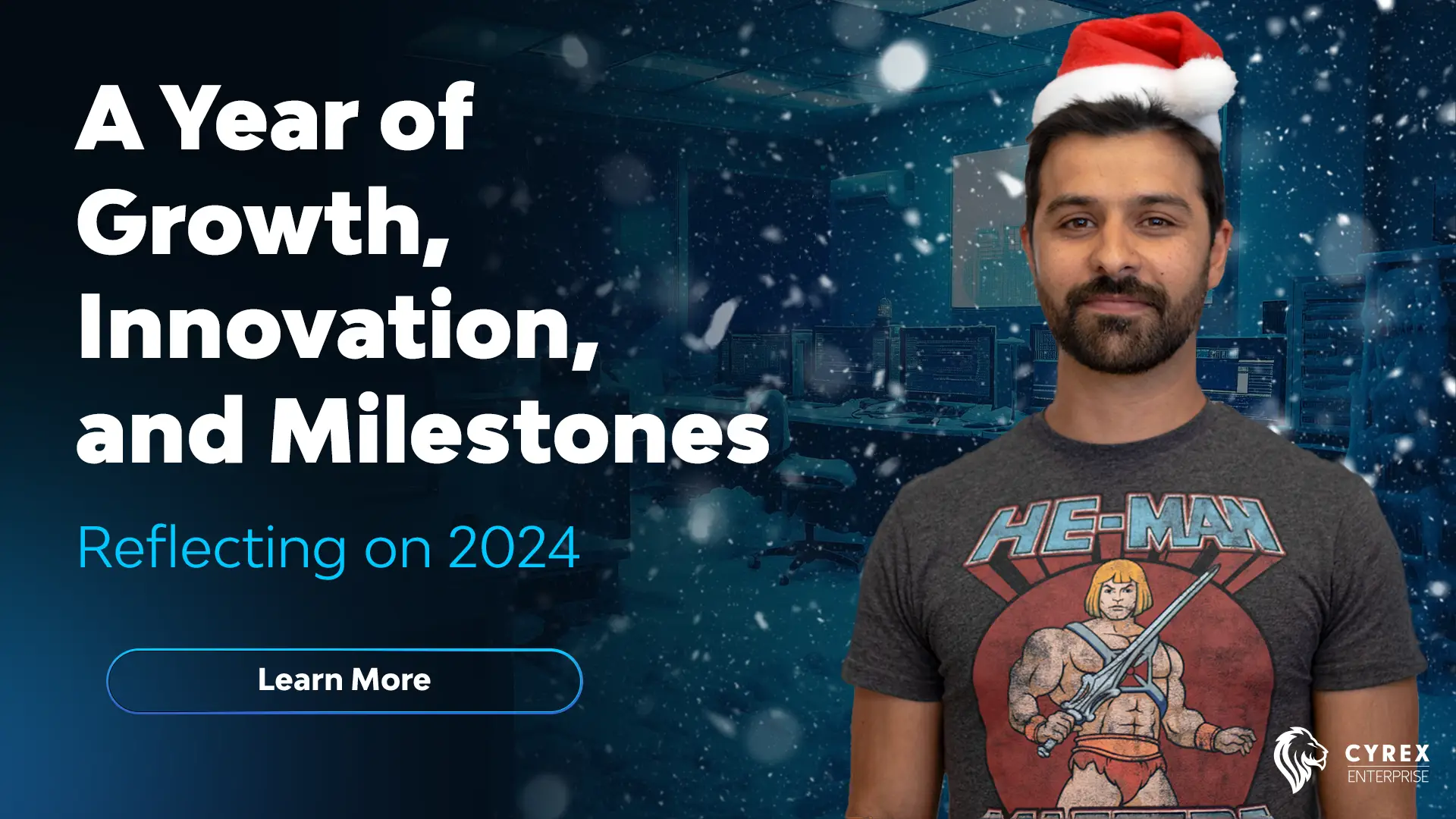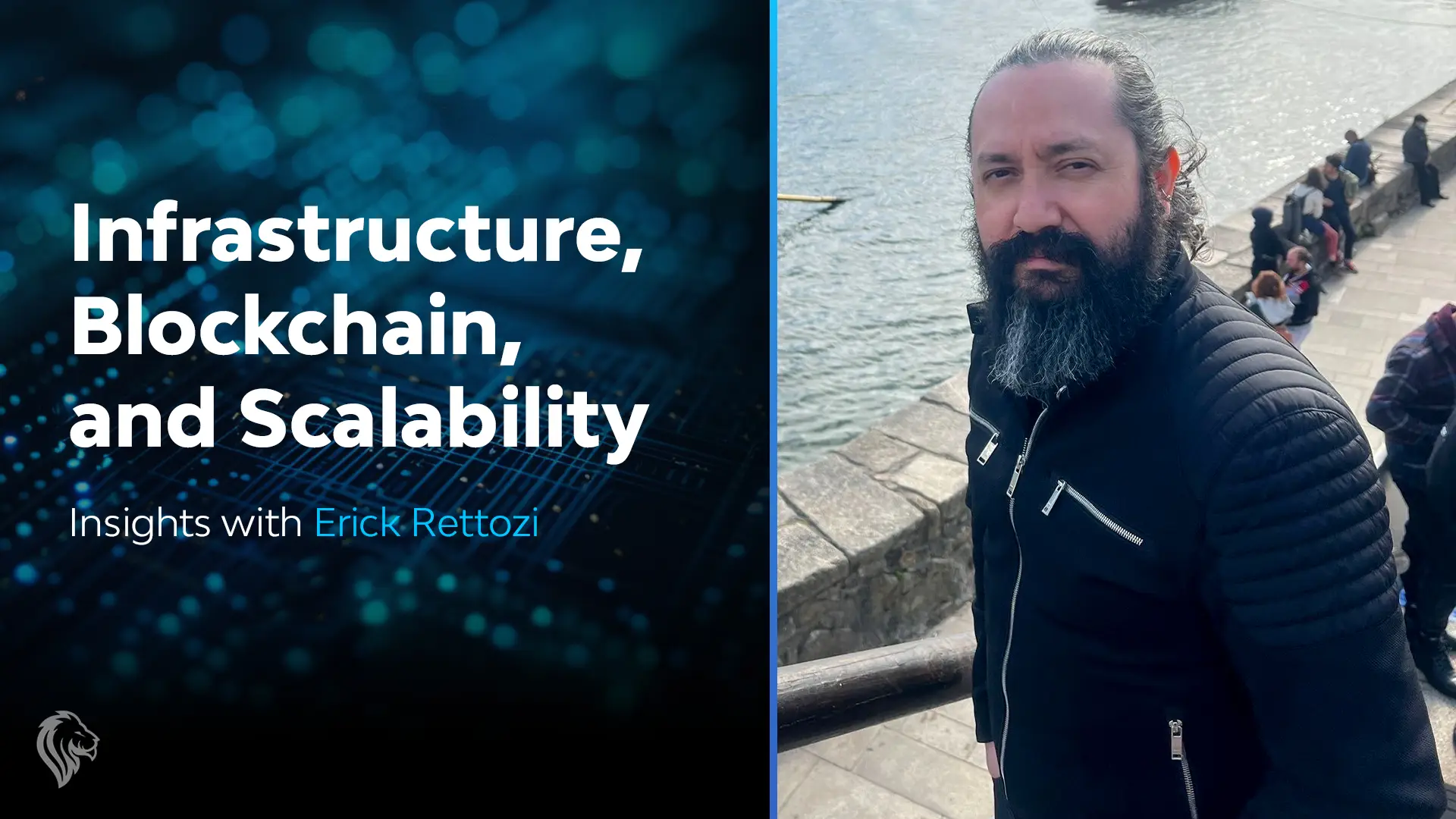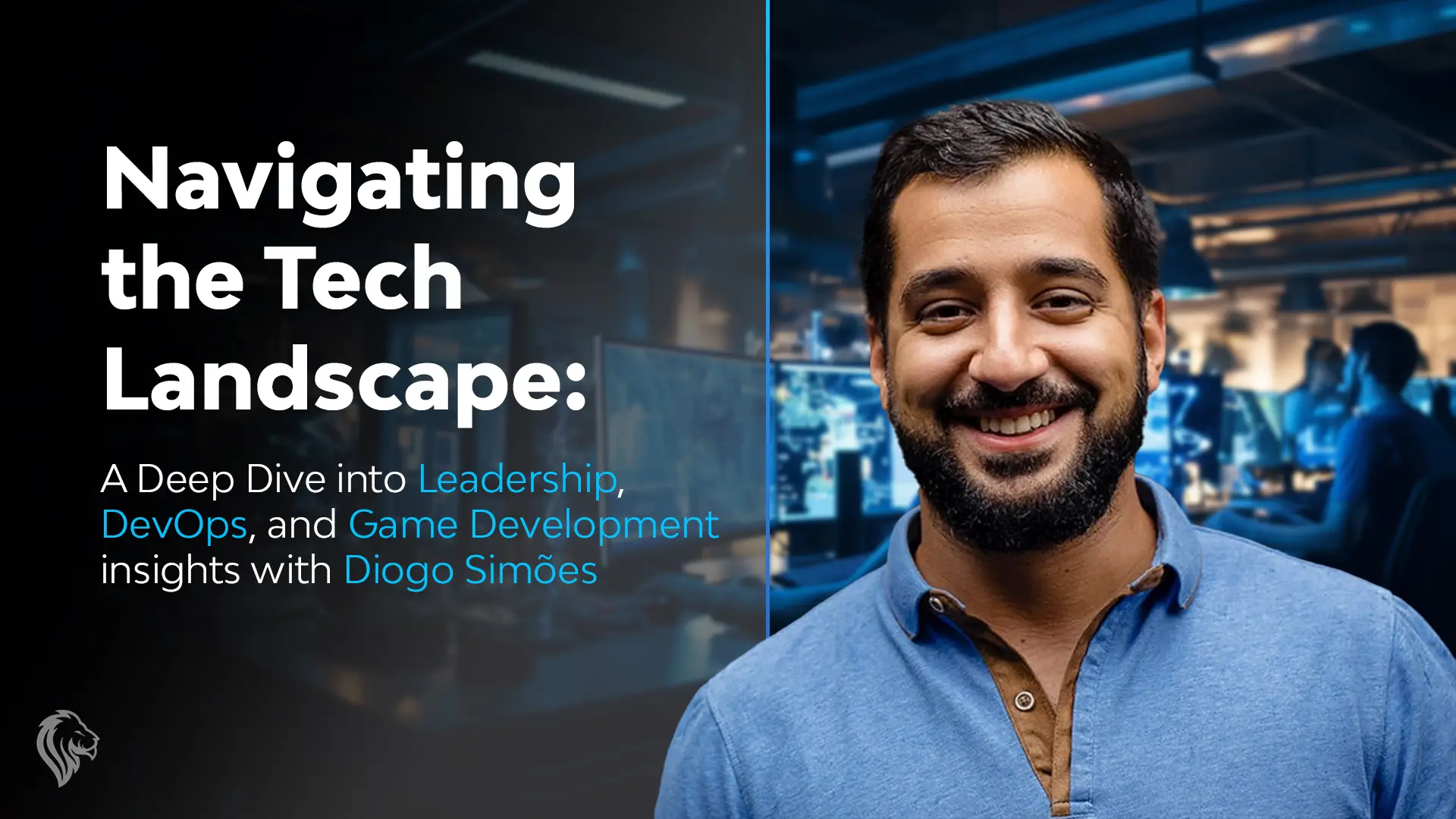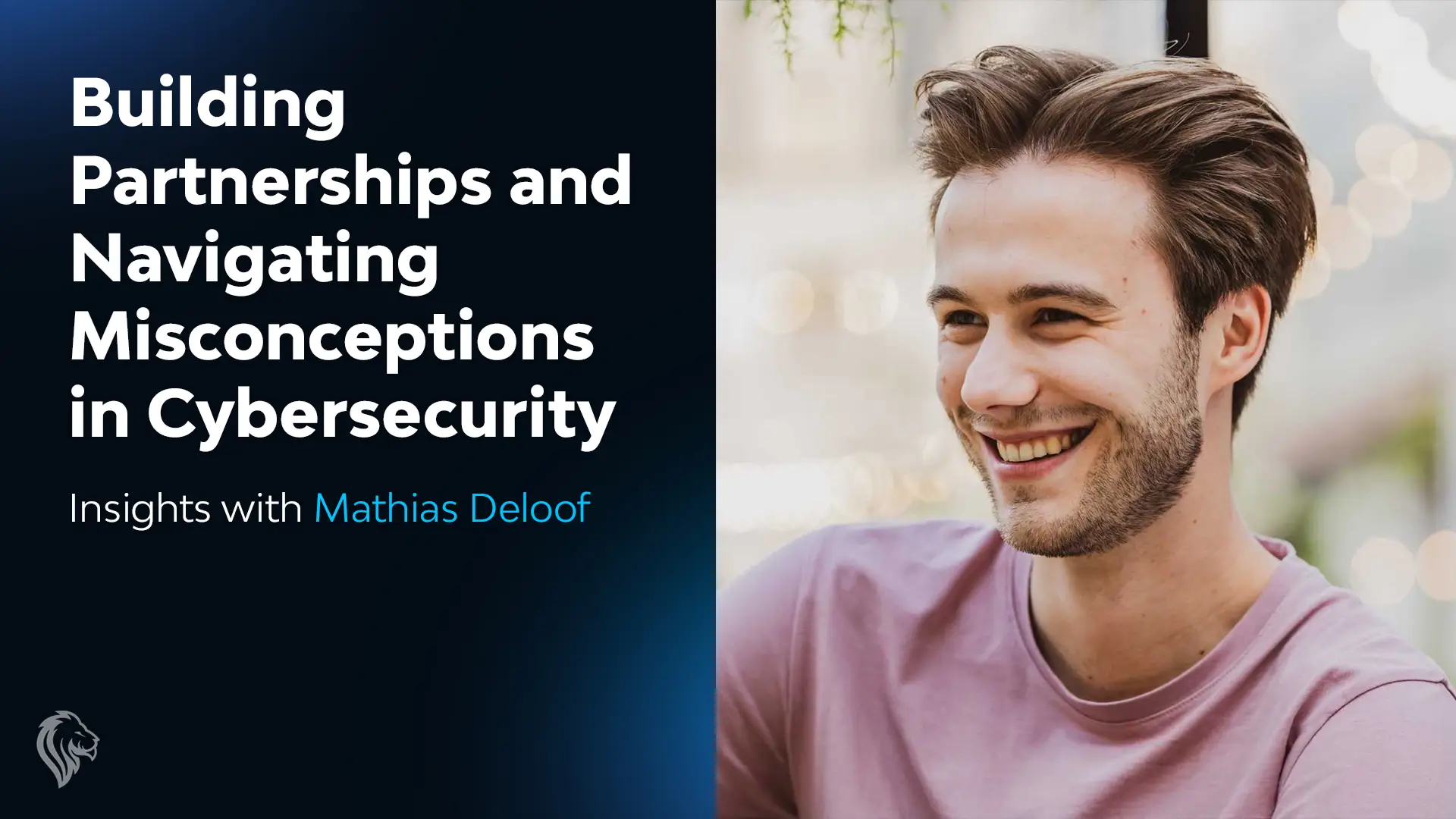We had the distinct pleasure this week of chatting with Cyrex’ own Strategic Partnership Manager, Mathias Deloof. Working closely with the entire organisation across both Cyrex and Cyrex Enterprise teams, Mathias is one of our ‘men on the ground’ discussing and navigating the landscape of clients. In an industry all about safety, stability, and security, trust is paramount. Even with a supreme talent like Mathias, that trust is still hard to win!
What initially attracted you to the Cybersecurity and Software Development industry?
I was always interested in it, a computer nerd from early on! My grandpa was the first person in our entire town to get a computer because he was an engineer. So, from about the age of 3, I was playing computer games. I was drawn to it immediately and since then, I’ve always been busy on the computer side of things.
I’m not super techy but I’ve always been interested in the sphere. I’ve been working in and studying the IT industry properly for about eight years now.
And how did you end up in this position with Cyrex?
Well I was also always interested in sales. I started off selling recurring donations to people on the street for non-profits, you know like UNICEF? A combination of my interests led me to an IT sales job about four years ago. Those days were all about cloud and pretty standard infrastructure set-ups. Later on, I pushed into cybersecurity and software development. It really interested me as soon as it entered my radar.
But I had always had this question in the back of my mind and the COVID lockdowns really made me think about it even more. All of these people were putting their data, all of it, on these applications and cloud storage. Everyone flocked to them for file sharing as we transitioned to work-from-home. And I just kept thinking, “did someone think about the security of these things or is it just open to the world?” Of course, it was often the latter!
With that always on my mind, it was inevitable I found my way to cybersecurity.
What do you think of the current tech landscape?
I think that’s a huge question that I could take a long time to answer! But there’s one thing I’d like to focus on for 2024. Something that really stood out to me among a lot of companies during my earlier years. I’ve a history of working with a lot of Belgium SMEs. Ones that are one or two hundred, three hundred, five hundred, even a thousand employees. And they’re running their accounts, their numbers, everything off a single Excel sheet! All because they’re used to it and they don’t want to move to new software that doesn’t exactly do the same thing.
It’s crazy. I was out for dinner with my Grandma and my niece, we’re both her godchildren. And my niece is changing jobs, the last thing they asked her to do was create a new copy of the Excel sheet the entire team worked off of. Not just for 2024 but for 2025 too! Because it was the function of the whole team and she was the only one that knew how to create a new one.
We have these specific companies needing specific solutions who are stuck in this old way of working. My goal is to show them that we can help, by turning these Excel sheets into bespoke software that is nothing but an improvement. Safer, more efficient, and would allow for better decision-making. It’s something I’d like to focus on, as it’s been a constant use case in my mind.
So people are reluctant to move from what they know. Are there any common misconceptions in cybersecurity or software development you’d like to address?
One we often see is “we’re too small for cybersecurity.” It’s a common misconception and it’s a really dangerous one. People think, “we’re too small, no one is looking at us.” But, of course, an attitude like that will almost certainly put you under surveillance from malicious actors. They know the budget might not be allocated for proper security. It’s something we’re really trying to get rid of.
We often say, especially to SaaS companies, “if you don’t have a product anymore to sell, you can’t grow.” That often cuts through budget arguments which focus exclusively on growth. We understand it, it’s hard to manage a smaller budget for something like this. However, a single breach can put your whole operation on hold for two years in some cases. We’ve seen it happen, I saw it in my old jobs. There’s a staggering impact.
The perception of security, of past breaches, is important as well. There’s a loss of clients based on the perception people have of your safety online.
Given the perception and the danger of the tech world, how do you go about building trust with clients in this industry?
Honesty always wins out. It’s a salesy answer but it’s true. We understand it’s scary to put out your IPs, your source code, to an external team. It’s a vulnerable position and can often feel like a leap of faith, so we always aim for transparency when working alongside you. We never view you as the next sale, our goal is long-term security and stability when delivering cybersecurity and software development. That’s why my position isn’t “business developer” – it’s partnership manager. That is something we take very seriously.
We’ll let our clients know, as early as possible, clear estimates for what they’re looking for. But if we don’t see the proper groundwork, we won’t just fire ahead and make the sale. That’s not our end goal. Our aim is security, stability, and a better tech world. That can’t be achieved if we jump forward with a project that doesn’t have the foundation for success.
The Enterprise team do workshops with clients, technical assistance and advice before we get to any project building. Defining what they want and how to achieve it. We understand your vision and assess the project’s realism. To me, that’s our difference. We’re not just going to jump at a $2.5 million project if we don’t see a potential for longevity. We want to see you succeed, even if that means starting smaller and building up. Our plan is always aimed at fostering a relationship based on trust and mutual success that helps make the tech world a better, more secure place.
Our goal is to build up our clients to long term success, not just achieve a short term payday.
If someone was trying to get into your position themselves, what advice would you give?
Number one skill – communication! It’s crucial. However, focus on more than just normal communication methods – develop your active listening ability. What do they want? Don’t just push your solution that fits, understand their pain points and make sure what you can offer is a good fit.
This is a huge building block for creating long term solutions and partnerships and the building of a great, reliable network.
And lastly, don’t stop learning! Read lots of books about your topic!
Related Articles

Reflecting on 2024: A Year of Growth, Innovation, and Milestones
Reflect on 2024 with Cyrex Enterprise! Discover our achievements in software development, ...
Read more
Infrastructure, Blockchain, and Scalability with Erick Rettozi
In this article, Cyrex' Lead Backend Engineer Erick Retozzi offers expert advice on buildi...
Read more
Wrapping up 2023 with Cyrex Enterprise
Discover the highlights of Cyrex Enterprise's remarkable journey in 2023, wrapping up a ye...
Read more
Navigating the Tech Landscape: A Deep Dive into Leadership, DevOps, and Game Development
Diogo Simões, Tech Lead at Cyrex Enterprise, shares insights into his role overseeing tec...
Read more


